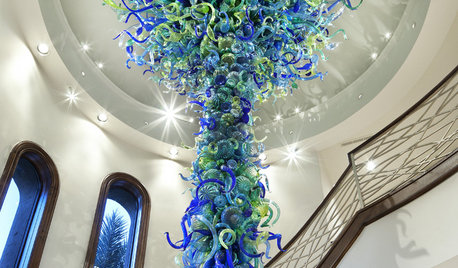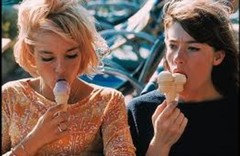Ali Smith - How To Be Both - Discussion
martin_z
9 years ago
Featured Answer
Comments (59)
martin_z
9 years agofriedag
9 years agoRelated Discussions
"Orange Smith"
Comments (2)I had the extreme privilege of listening to Belgium's Ingrid Verdegem and the Mother Lode's Fred Boutin talk about roses together last weekend. One thing discussed was that DNA seems to indicate that Archduke Charles and Old Blush are genetically identical!!! That opens up a lot of thought about what other roses are "genetically the same" that we tend to think of as seedings/hybrids. It also brings into question what we are missing in those DNA tests. Something causes Archduke Charles to be distinctly different from Old Blush on a stable basis - and for Orange Smith to be subtly different from AC. What is not being detected in the tests? And how are the tests that are cited as though infallible being conducted? Apparently there are several ways to do it - testing from chlorophyll is the easiest and cheapest and may be the most incomplete. I am definitely no scientist but listened as carefully as I could. Ingrid ended her lecture with a quote from Voltaire -Doubt is not a pleasant condition, but certainty is absurd. Goodness knows, I am sure of less and less, the more that I observe, read and listen about old roses. Anita...See MoreDiscussion: Birds Without Wings by Louis de Bernieres
Comments (82)Maybe it's the yob philistine in me or just plain literary indolence but the last thing I care about in novels is what label the critics (or readers for that matter) want to pin on a particular work. The only question I ask is does the tale hangs together well? I can accept fantasy,surrealism a little magic realism (whatever the hell that is), whatever - just so long as it feels right within the framework of the story. I guess this is purely an instinctual approach but my preferred one. I found Georgio's death one of the most affecting parts of BWW and it did not jar in the least. I do agree that Georgio's drowning diatribe against political,religious and military "F***heads" ruining a beautiful world represent pretty well a summary of deB's own views. I don't think in either novel he takes a particularly anti-Greek, anti- Italian or anti - Turk point of view or their converse. He does criticise unmercifully all their leaders however in all their incompetence, greed, sheer pig ignorance and self aggrandising madness. It is the ordinary people of all these nations that he admires and weeps at the travails visited upon them by their maniacal leaders. I read somewhere that deB said his preferred method of work was to show how the megalomaniacs chew up the societies the try to remake in their own twisted image. Above all this analysis and introspection both BWW and CCM are beautiful human works by a great writer. Larry...See MoreRP book discussion - what's next?
Comments (50)Hmmm... for the sake of tossing out ideas... For some reason I've been in the mood to go back and read some of our Southern writers. I know Faulkner has been mentioned here before. Others I've been wanting to revisit include Eudora Welty and Robert Penn Warren. In fact, the new movie version of All the King's Men with Sean Penn, Jude Law and Kate Winslet comes out in Sept. It might be fun to read it before it comes out. For something fun and frothy, I haven't read anything by Thorne Smith. Thought it might be fun to give him a try, but don't know how available his books are these days....See MoreRP Discussion - The Prime of Miss Jean Brodie - Muriel Spark
Comments (7)SPOILERS! What struck me in re-reading this after many years is that as a teenager I thought Jean Brodie was wonderful and Sandy was rotten; as an adult, I see JB as manipulative and dangerous, though also pitiful and self-deluded, and Sandy as the clear thinker -- though I have to admit I'm still not overly-fond of Sandy (perhaps it's those little piggy eyes that were noted over and over again). The other aspect of the story that stood out to me this time (and I'm repeating myself from the other thread that includes TPOMJB) was that when Sandy rebelled against Brodie, the usual youth and adult roles were reversed. In my experience of books and movies, the youth are usually more freedom-seeking, sexually active, risk-taking and outside-the-box thinkers while the adult characters are usually more traditional, possibly religious, and socially conservative. To reverse the roles made the book much more interesting. The authority figure was the libertine, the child in her charge was the traditionalist. IMO Brodie was definitely trying to live through "her" girls, and make the girls over in her own image. My strong impression was that she was very sure of herself and truly believed her POV was perfectly right and would benefit the girls. I don't think she was manipulating them just for the sake of manipulating them. Only Sandy seemed to be aware of the scope and danger of JB's influence. The others seemed to safely drift away into adulthood, for the most part unharmed by her influence. Dido, I agree the letters were a riot. Very true to girls that age and very unintentionally funny. The men in the book seemed rather vacant and easily led, particularly the music teacher. The art teacher had his own selfish idea of what was morally acceptable, as he was cheating on his wife without qualm. Not very likable, either of them. I've never seen the movie, so I had no image of Jean Brodie in my mind. I must confess that when I think of Maggie Smith, I think of Professor McGonagall! I'll have to see if I can rent it....See Moresheriz6
9 years agomartin_z
9 years agoveer
9 years agowoodnymph2_gw
9 years agosheriz6
9 years agofriedag
9 years agowoodnymph2_gw
9 years agoveer
9 years agofriedag
9 years agofriedag
9 years agosheriz6
9 years agofriedag
9 years agofriedag
9 years agomartin_z
9 years agomartin_z
9 years agofriedag
9 years agofriedag
9 years agomartin_z
9 years agowoodnymph2_gw
9 years agofriedag
9 years agocarolyn_ky
9 years agomartin_z
9 years agowoodnymph2_gw
9 years agowoodnymph2_gw
9 years agofriedag
9 years agowoodnymph2_gw
9 years agofriedag
9 years agofriedag
9 years agosheriz6
9 years agofriedag
9 years agofriedag
9 years agomartin_z
9 years agomartin_z
9 years agosheriz6
9 years agofriedag
9 years agomartin_z
9 years agocarolyn_ky
9 years agorouan
9 years agomartin_z
9 years agorouan
9 years agomartin_z
9 years agovee_new
9 years agomartin_z
9 years agovee_new
9 years agosheri_z6
8 years agomartin_z
6 years agovee_new
6 years ago
Related Stories

BEDROOMSRoom of the Day: Finding Middle Ground in a Master Bedroom
He loves bold; she loves soft. It took a designer’s intervention to create a space that pleased them both
Full Story
LIFEHow to Navigate an Extended Guest Stay
Keep sharing living quarters a positive experience by pondering the answers to these questions in advance
Full Story
CONTEMPORARY HOMESHouzz Tour: Strong, Modern Lines Stand Up to the Trees
Modernism takes kindly to the New York woods, with double-height ceilings for openness and a burbling creek for music
Full Story
GREEN BUILDINGHouzz Tour: Going Completely Off the Grid in Nova Scotia
Powered by sunshine and built with salvaged materials, this Canadian home is an experiment for green building practices
Full Story
ARTBring on the Garden Bling With Artful Stainless Steel
Set stainless free of the kitchen, using it to brighten and decorate any garden in an unexpected way
Full Story
FARMHOUSES15 Modern-Rustic Farmhouses Celebrate Simple Pleasures
All the charm, no-fuss style and wide porches might have you heading for the countryside
Full Story
ARTWitness a Fantastic Chihuly Glass Sculpture Installation
Ever wonder what goes into a design that includes a major — and highly breakable — artwork? Here's your chance to find out
Full Story
PETSSo You're Thinking About Getting a Dog
Prepare yourself for the realities of training, cost and the impact that lovable pooch might have on your house
Full Story
BATHROOM DESIGNBathroom Workbook: 7 Natural Stones With Enduring Beauty
Not everyone wants a marble bath. Bring organic warmth to counters, walls or floors with these hard-wearing alternatives
Full Story
TRADITIONAL STYLEDecorating With Antiques: Silver’s Legacy
Learn how to tell sterling from plate, ways to display pieces and why silver is so darn special to begin with
Full Story



vee_new